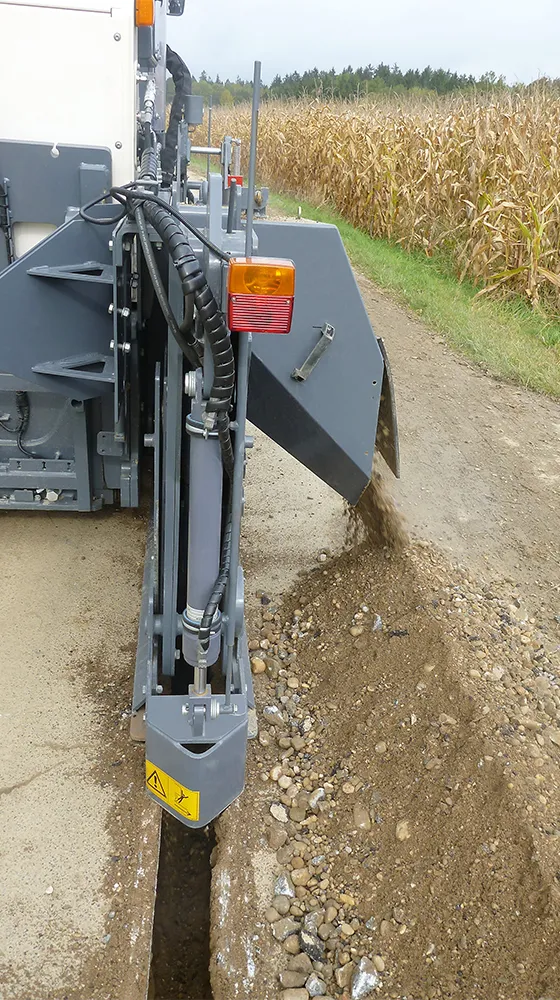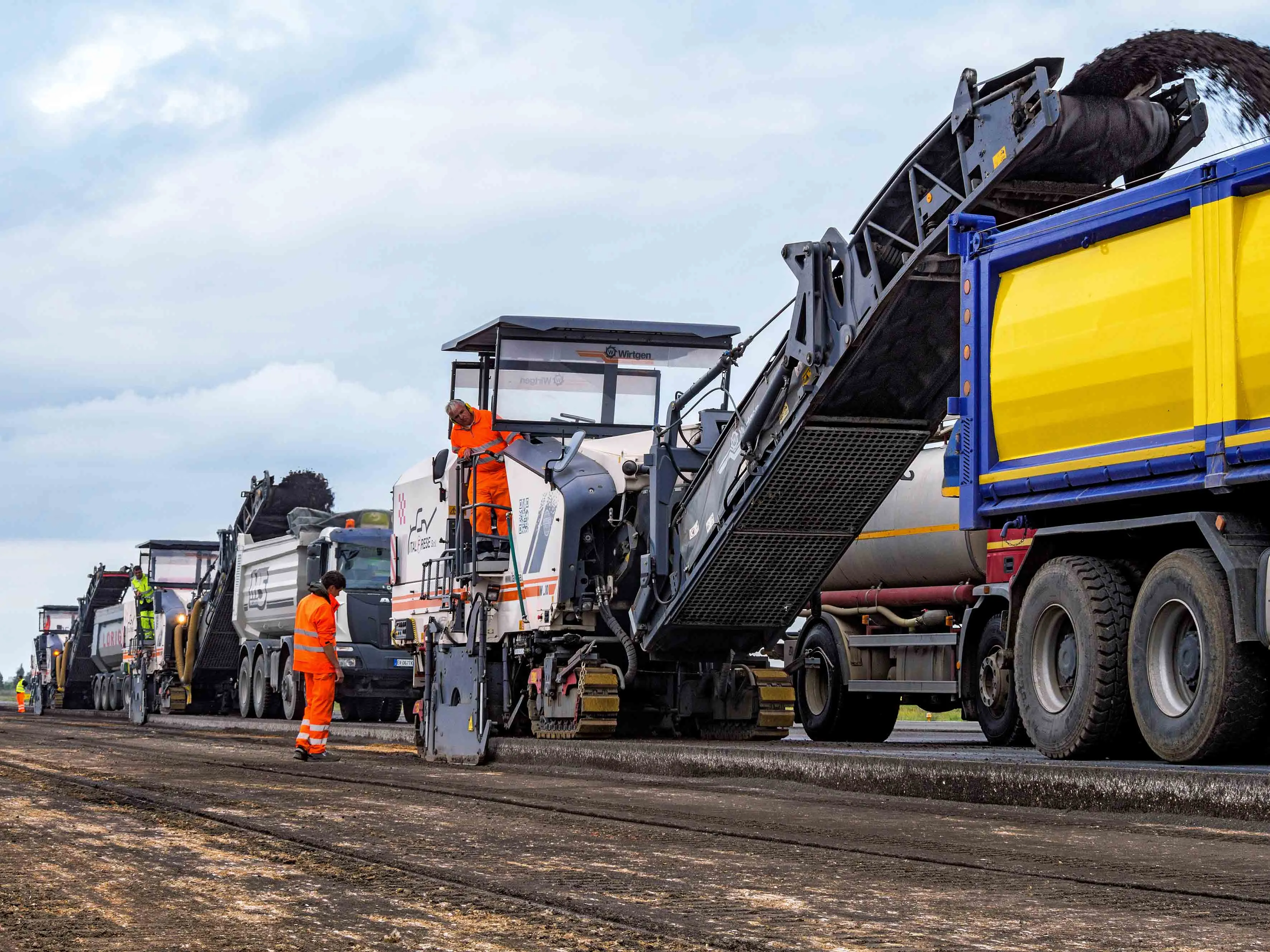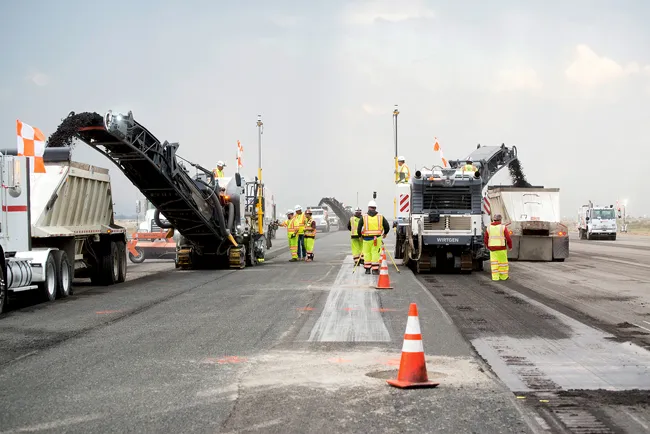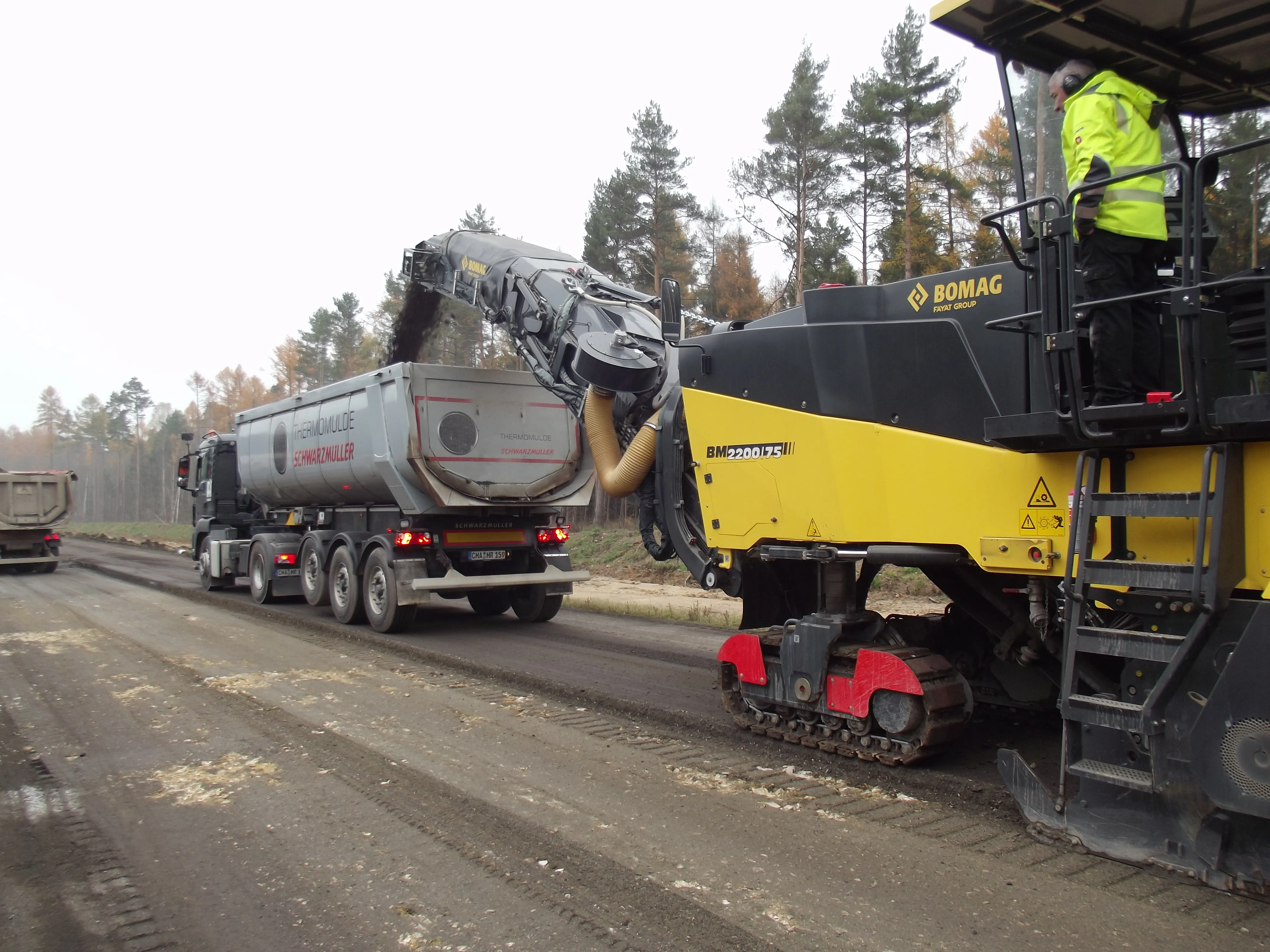
Engelhartszell is the second community to benefit from this technology. And the contractor, Hemmelmair Frästechnik from Linz, is also making use of cutting-edge technology - in this case made from steel and carbide. A
“We have 15 Wirtgen cold milling machines in operation,” explained Manfred Grössing, managing director of Hemmelmair. Once the requirements had been discussed with Wirtgen’s product management team, the design department at Wirtgen’s headquarters in Germany was given the development order.
“We wanted our customer to be able to use the milling machine flexibly, i.e. be able to switch back to conventional repair jobs as quickly as possible,” said Manfred Stiegler, customer service manager at the Wirtgen Group’s sales and service company in Austria.
The W 100 CFi was the ideal candidate for the job in Upper Austria. One of the new generation of Wirtgen compact milling machines, it integrates many new and automated functions to optimise work processes, such as a special solution for the trenching.
A housing containing a narrow cutting wheel fitted with standard W6 picks is mounted behind the folded-in crawler track on the right. With a very large cutting diameter of 1,620mm, it can mill channels up to 600mm deep and 300mm wide. The rotary milling motion conveys the milled material upwards, where it is discharged via a baffle plate and chute.
The deep milling unit is controlled from the traditional control panel of the W 100 CFi. “This means that the machine operator can operate his milling machine in the usual way,“ said Andreas Salz, responsible for design and development of cutting technology.
Manfred Grössing was immediately won over by the WIRTGEN trenching solution: “The easy assembly and dismantling of the deep milling unit and the straightforward transport of the W 100 CFi allows us to use the milling machine flexibly and thus optimally.“
That was also the case with the job in Upper Austria: shortly after the trenching job, the W 100 CFi compact milling machine was being used to repair a country road. Here, too, the W 100 CFi hit the spot with its cost-effectiveness, in this case mainly thanks to the Flexible Cutter System.
The WIRTGEN Flexible Cutter System, or FCS for short, delivers the optimum solution for high machine capacity utilisation: milling drums with a variety of tool spacings or working widths can be replaced in a short space of time. It takes only 0.5 to 1.5 hours to replace the drum, depending on the machine – converting the cold milling machine from a standard to a fine milling machine, for instance. Removing ruts from a country road, preparing a carriageway for a thin overlay using a fine milling drum or removing coatings on asphalt or concrete surfaces with a micro fine milling drum – all of these tasks can be handled with one and the same cold milling machine. The range of FCS milling drums is large, opening up a vast array of applications for cold milling machines.









